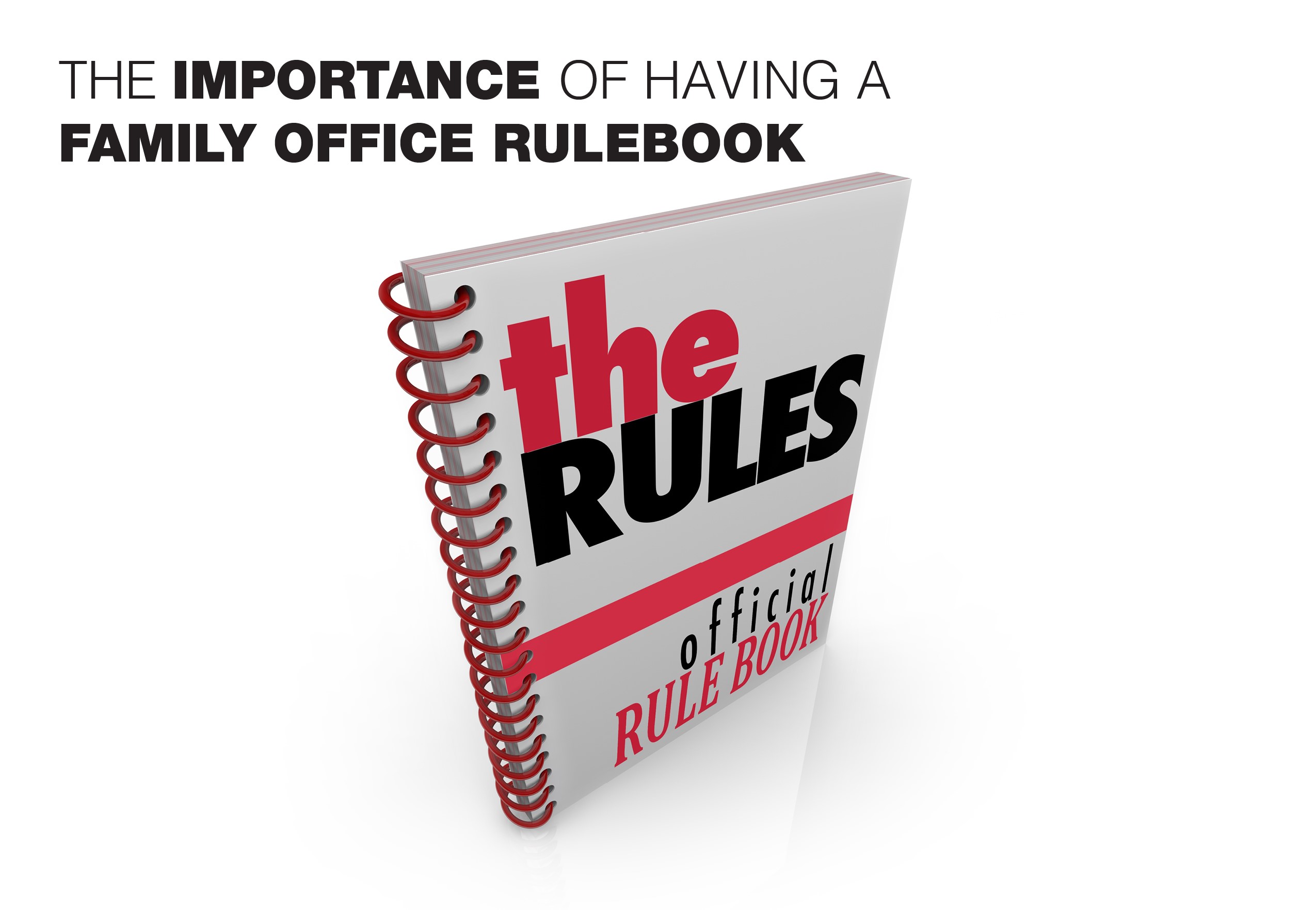When building a house, you start by creating a solid foundation before adding the walls, roof and all the details that go into a beautiful home. The same should hold true for high-net-worth individuals who plan on constructing a family office to manage their wealth over the long term.
That’s why it is so important to have a well-thought-out family office rulebook in place before making the day-to-day investment decisions. Of course, if you already have a family office, my question is whether you have rules and protocols in place. If you do not, it isn’t too late to benefit from putting a rulebook in place, ideally with the help of an experienced outside financial professional.
Why is a rulebook so important? It provides a safeguard for protecting the interests and the assets of a multi-generational wealthy family. It also provides clear guidance for the family office CEO and their team, making it easier for them to perform their jobs effectively.
When creating a rulebook, agreeing on a mission statement for the family and the family office is an important starting point. Does the founder want to preserve wealth to benefit future generations or grow the family’s net worth? Those are two different perspectives that should be discussed in advance to find the right balance between growth and security.
The rule book should also include a statement about values. This might emphasise the importance of providing financial support for non-profits whose work is making a difference in the local, national or global community. The values statement could also direct the family office team to focus on investments thatpromote environmental sustainability, for instance, or rule out companies whose products have a negative impact on health and wellbeing.
Next, a family office rulebook should specify the policies and procedures for implementing those goals and values. When it comes to investments, for instance, what are the protocols for making an asset purchase? Does a family member need to sign off on a transaction, or can the CEO of the family office team make the decision?
In constructing the portfolio, are there maximum and minimum limits in certain asset classes? Setting up investment parameters is a critical step in aligning allocations with the family’s tolerance for risk. After all, most wealthy individuals would probably not want the family office CEO to shift millions of dollars into high- risk investments that could devastate the family’s finances.
Having a rulebook in place also makes it easier to audit the activities of the family office, such as ensuringthat all trades were authorized in an appropriate manner. It can also help in tracing what occurred in the event of a significant loss.
Finally, a family office rulebook should also include procedures for protecting against criminal activity, such as wire fraud or hackers trying to gain access to the accounts. It can also cover physical security measures, such as shredding confidential financial papers or limiting access to the family office itself.
How can you measure the success of your family office if you don’t have well defined rules and goals? The family office rulebook gives everyone in the family and family office a well-defined measuring stick. It reduces the opportunity for discord on the whether the family office has achieved what you set it out to do or not.
For all these reasons, a family office rulebook, developed with the assistance of an outside professional, can provide an invaluable foundation for securing the future for high-net-worth families.

Leave A Comment